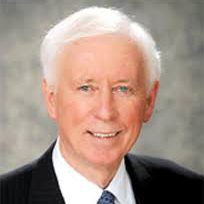Influenza and Heart Disease
The World Medical Association (WMA) and the International Federation of Pharmaceutical Manufacturers and Associations (IFPMA) participated in a satellite symposium for the 6600 cardiologists attending the World Heart Federation Congress in Mexico City, June 5-7, 2016.
I was pleased to be here in Mexico representing the WMA along with Dr. Abraham Palache from the IFPMA to introduce the link between Seasonal Influenza and Noncommunicable Disease (NCD).
Influenza is a highly contagious disease that causes:
- 250,000 – 500,000 annual deaths globally
- 3.5 million cases of severe illness
- More than 200,000 hospitalizations in USA alone
- $10.4 billion of direct medical costs annually
- Additional costs from workplace absenteeism and disruption of services
- 11-59% of healthcare workers get the virus while caring for infected patients
- Affects already vulnerable populations: children, older adults, pregnant women, people living with NCDs
NCDs are the major cause of disease worldwide in the developed and in the developing countries. They include heart disease, chronic lung disease, diabetes and cancer.
It is important to understand that developing countries have not only the increases in NCDs but also the continued onslaught of infectious disease and trauma – a triple cause of illness and increased mortality for developing countries.
There is a link between seasonal influenza and NCDs such as heart disease. 50 percent of adults hospitalized during the 2014-15 flu season in the USA had heart disease. Heart disease includes but is not limited to coronary artery disease (heart attack or myocardial infarction, acute coronary syndrome and angina). It also includes the following common conditions: Heart failure, Hypertensive heart disease, Pulmonary heart disease, Heart valve disorders, Arrhythmias including atrial fibrillation, and congenital heart defects.
Heart disease is increasingly considered to be an inflammatory condition triggered by infections.
In persons with heart disease systemic respiratory infections, which are frequently caused by influenza viruses, increase the risk of stroke and heart attacks three and five fold respectively.
Around one-third of additional deaths (increase of up to 4%) during the influenza season are due to heart disease. The risk of dying from acute myocardial infarction and chronic ischemic heart disease is 1.3 times greater during influenza epidemic weeks.
Seasonal vaccinations may reduce complications, such as heart attacks, by up to 67 percent.
One study calculated the influenza vaccine efficacy to be 29% in preventing acute myocardial infarction(AMI). This compares favorably to other AMI preventive measures, such as treatment with statins for cholesterol (efficacy of 36%), treatment of hypertension (efficacy of 15%-18%) and smoking cessation interventions (efficacy of 26%).
Think about it.
One influenza shot per year decreases acute myocardial infarction by 29 percent. Makes one want to include influenza shots as an essential ingredient of cardiac care.
There are important influenza roles for physicians who have a:
- Higher risk of both transmitting and acquiring influenza.
- Positive vaccination recommendations and acting as a role model for healthy behaviors influences patients’ behavior.
- As a role model – as a role model – as a ……
- Physicians are a preferred source of information on health issues
The benefits of vaccinating healthcare workers including physicians include:
- Vaccines are 70-90% effective at preventing influenza among healthy adults, reduce complications by 60% in the elderly and avoid 80% of deaths
- Vaccination of health workers has been linked to improved patient outcomes
- Reduces staff absenteeism
- Saves costs
- No disruption of health services – better quality care
The campaign, “We Can Do Better” is a project of the World Medical Association and the International Federation of Pharmaceutical Manufacturers and Associations. It began in April 20, 2013 with a kickoff in Geneva, Switzerland. The present event in Mexico City was a part of the campaign.
The purpose was to promote influenza immunization among physicians as a means to protect their health and the health of their patients.
The initiative was based on evidence that healthcare workers do not take influenza immunization.
In the CDC for example, the healthcare workers vaccinations coverage used to be around 40 percent in the US.
However that changed in 2013 when the Veterans Health administration healthcare facilities vaccinated 64 percent of their employees through a system-wide “Infection: Don’t Pass it On” campaign.
We have peer-reviewed evidence that as the percentage of immunized healthcare workers goes up, healthcare-associated influenza goes down.
We also know that educational campaigns in immunization work.
Immunizing physicians against influenza represents a standard of quality care and we as an organization speaking on behalf of more than 9 million physicians globally are saying today “we can do better”.
The goal is to:
Increase physicians’ awareness of the importance of influenza immunization among healthcare professionals to reduce nosocomial infections
Encourage physicians to get vaccinated against influenza to serve as role model and protect their patients
Enhance physician’s communication skills to promote health and prevent disease
The campaign was to focus on physicians as role models.
The conclusions presented during the cardiology meeting in Mexico City included:
- Influenza vaccination may offer another strategy as secondary prevention to prevent AMI
- Physicians should be aware of the need to offer vaccination to patients with CVD
- Cardiologists should consider offering vaccination following an AMI prior to hospital discharge
- Physicians should act as role models and get immunized themselves and then recommend their patients to follow the lead
- Global advocacy and awareness raising/educational campaigns are needed to improve the vaccination coverage among healthcare workers and patients at high-risk of complications
The motto for physicians in regard to influenza vaccination is:
I am.
It is my ethical and moral duty to promote quality care.
I am immunized against the flu.
Are you?
Cecil B. Wilson, MD, MACP
Past President World Medical Association
WMA Past Presidents and Chairs Network (PPCN)

